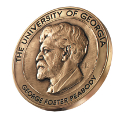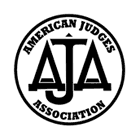
Diversity and the nomination of a new Supreme Court justice were two major themes in the justices’ extrajudicial talks this past month.
Justice Sonia Sotomayor shared her thoughts about the confirmation process at the 18th Annual John P. Frank Memorial Lecture at Arizona State University on January 23. Trying to get nominees to say how they would rule on specific issues is not the right approach, Sotomayor said. “Any self-respecting judge who comes in with an agenda that would permit that judge to tell you how they will vote is the kind of person you don’t want as a judge,” she said. Rather, senators should ask whether nominees have ruled in ways that have run contrary to their personal feelings, and whether they have treated others with “respect and dignity.” A summary of Sotomayor’s talk is available at ASU Now.
On January 30, Sotomayor shared the stage with Federal Constitutional Court of Germany judge Susanne Baer at two University of Michigan events. At the first, a lecture titled “The Future University Community,” she discussed the importance of increasing diversity on college campuses. “We are making improvements toward that kind of equality. But we are still far from it. When you look at the number of African Americans at the University of Michigan, there’s a real problem.” Video of both this event and the second lecture, “Social Justice and the Performing Arts,” is available via the University of Michigan’s YouTube page.
Continue reading »
In The New York Times, Adam Liptak and others look at the effect on a young Neil Gorsuch of his mother’s experiences as EPA administrator during the Reagan administration, noting that if “he survives confirmation, he will have conquered the capital that did her in.” In The Wall Street Journal, Beth Reinhard and Jess Bravin report that although President Donald Trump, in announcing Gorsuch’s nomination to the Supreme Court, cited Gorsuch’s work with two volunteer legal assistance programs at Harvard Law School as evidence of the judge’s “’commitment to helping the less fortunate,” “roughly three dozen students who participated in the two programs while Mr. Gorsuch was at Harvard Law School from 1988 to 1991 said they have no recollection of his involvement.” At Empirical SCOTUS, Samuel Morse looks at “the average length of time Supreme Court nominees have waited before having a Senate vote on their nomination under differing Congressional compositions” and concludes that “we might expect a vote on Judge Gorsuch’s nomination in the seventy-five to one-hundred-day range from his nomination on January 31, 2017, placing the potential vote between approximately April 17 and May 11 of this year, whether or not the nuclear option is invoked.”
Continue reading »
The petition of the day is:
16-730
Issue: Whether the equal protection clause of the 14th Amendment permits the City of Tucson to exclude certain registered voters from the primary election for a citywide representative based solely on the geographic location of such voters’ residence within the city.
The Supreme Court released its calendar for its March sitting this morning. The calendar includes some high-profile cases – most notably, Gloucester County School Board v. G.G., the case of a transgender student who identifies as a boy and wants to be able to use the boys’ bathroom at his Virginia high school, which will be argued on March 28. The calendar also includes two cases – Murr v. Wisconsin and Microsoft Corp. v. Baker – that were granted before the death of Justice Antonin Scalia but had not yet been scheduled for oral argument. However, the third case granted before Scalia’s death, Trinity Lutheran Church v. Pauley, still has not yet been slated for oral argument.
Continue reading »
Within hours of Judge Neil Gorsuch’s nomination to the Supreme Court, several Democratic senators pledged to oppose his confirmation. Considering Gorsuch’s unquestionable qualifications for the job, Democrats are largely latching on to the Republicans’ refusal to consider former President Barack Obama’s nominee, Chief Judge Merrick Garland, as a reason to oppose any nomination by President Donald Trump, regardless of the nominee. In fact, even before Trump’s announcement, Sen. Jeff Merkley (D-Ore.) declared that “this is a stolen seat” and that “we will use every lever in our power to stop this,” indicating an intention to filibuster.
However, a number of Democrats, especially those hailing from red states, have shown a willingness to consider Gorsuch’s nomination. Sen. Joe Manchin (D-W.Va.) said that “we should debate his qualifications on the Senate floor,” indicating that he would vote for cloture, the procedure that can end a filibuster and allow for a vote. Democrats could lose up to seven senators from their party (including the two independents who caucus with the Democrats) and maintain the filibuster, which would require a vote of 60 to overcome.
Continue reading »
Coverage of the nomination of Judge Neil Gorsuch to the Supreme Court comes from Steven Mazie in The Economist, who observes that “Democrats may be hard-pressed to vilify the scholarly jurist, but their sense that he has been tapped for a stolen seat is certain to cloud his confirmation hearing,” and from Andrew Chung and Lawrence Hurley at Reuters. At Politico, Aidan Quigley reports on Gorsuch’s opposition to “progressive protesters” during his college years at Columbia University.
Continue reading »
The petition of the day is:
16-729
Issue: Whether a third-party finding of probable cause—including a post-arrest grand jury indictment—precludes a false arrest suit under 42 U.S.C. § 1983, as the U.S. Court of Appeals for the 5th Circuit has held pursuant to its “independent intermediary doctrine,” in conflict with precedent of this court and other courts of appeals.
Below the jump is a compilation of Judge Neil Gorsuch’s jurisprudence on the U.S. Court of Appeals for the 10th Circuit in a number of key areas. The quoted case descriptions are from Westlaw, except where described as quotations from Gorsuch. We will be updating this list as we do additional research in other areas of the law.
On Friday, February 3, we expanded this list to include additional opinions by Gorsuch in several areas, including administrative law, antitrust, arbitration, criminal law, employment law, immigration, intellectual property, privacy, and tax.
Continue reading »
Coverage and commentary on President Donald Trump’s nomination of Judge Neil Gorsuch to the Supreme Court continues to take center stage. Mark Walsh covers the scene in the East Room for this blog. Nick Blumberg reports on the nomination for Chicago Tonight, as does Ron Elving for NPR. The most recent episode of the NPR Politics Podcast features coverage of the nomination. At Bloomberg BNA (video), Kimberly Robinson and Patrick Gregory break down the new Supreme Court nominee’s qualifications.
Continue reading »
The petition of the day is:
16-753
Issues: (1) Whether the First Amendment to the United States Constitution prohibits the State of New York from compelling an entire profession, namely individuals who operate family daycare businesses, to accept a mandatory representative for lobbying and contracting with the State over regulations and policies that affect that profession; and (2) whether a private party that violates a citizen’s First Amendment rights is immune from liability for damages under 42 U.S.C. § 1983 if that party acted with a “good faith” belief that its unconstitutional conduct was lawful.




































